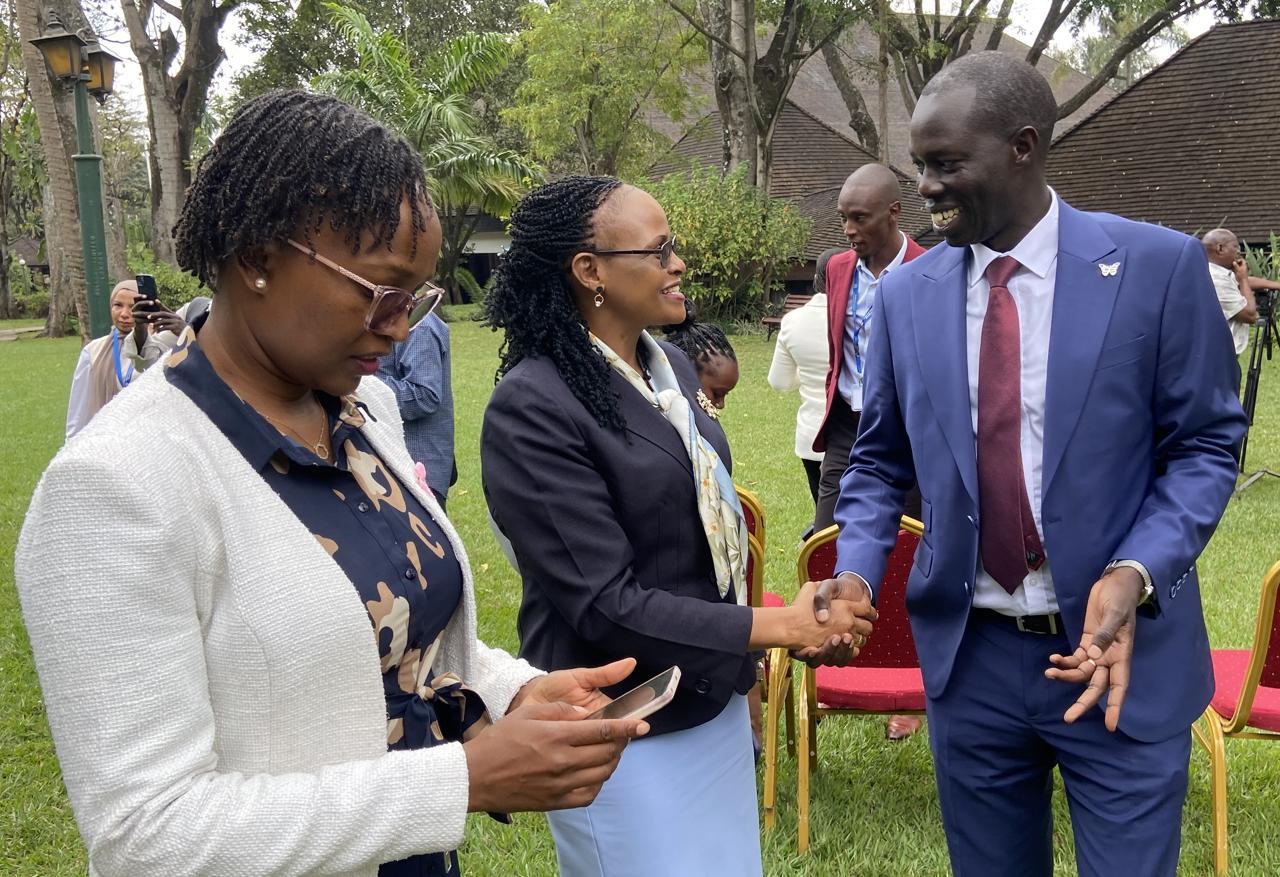 KNRA Director General James Keter (right), Dr Joan-Paula Bor of the National Cancer Control Programme (left) and National Cancer Institute of Kenya’s Emily Barsito at Monday’s launch./HANDOUT
KNRA Director General James Keter (right), Dr Joan-Paula Bor of the National Cancer Control Programme (left) and National Cancer Institute of Kenya’s Emily Barsito at Monday’s launch./HANDOUT
Health and regulatory authorities have called for increased cancer awareness and strengthened diagnostic capacity in Africa to pave the way for effective cancer management.
This emerged during Monday’s launch of a regional course on breast cancer imaging hosted by Kenyatta University Teaching, Referral and Research Hospital (KUTRRH) in partnership with the International Atomic Energy Agency (IAEA) in Nairobi.
The event brought together cancer care experts and participants from 13 countries.
Kenya Nuclear Regulatory Authority (KNRA) Director General James Keter said the launch was timely, October being the Breast Cancer Awareness month.
“Cancer has become one of the most pressing public health challenges in Africa,” said Mr Keter. “With approximately 1.1 million new cases and 700,000 deaths annually, the urgency to act has never been more compelling,” he added.
Experts present said breast cancer remains a leading cause of cancer-related deaths among women in sub-Saharan Africa, with limited access to early detection services and a shortage of trained medical personnel contributing to late diagnoses and poor outcomes.
The role of imaging, ranging from mammography to advanced nuclear medicine techniques, was singled out as central to early detection, accurate staging, treatment planning and monitoring.
“Imaging is not merely a diagnostic tool. It is a lifeline,” the KNRA Director General said, adding that without reliable imaging, the fight against cancer is badly hampered.
The IAEA-led course focuses on advanced imaging techniques but also on building long-term capacity through professional training.
The attendees are drawn from Africa’s pool of radiologists, nuclear medicine specialists, radiographers, medical physicists and therapy nurses among others.
At the launch, KNRA reaffirmed its commitment to supporting health institutions by ensuring radiation technologies are deployed safely and effectively.
“As the national regulator, we are dedicated to working with KUTRRH and all other institutions to harness the full benefits of technology, while upholding the highest safety standards,” Mr Keter said.
The event also highlighted the need for continuous public education and policy support to sustain breast awareness, with the experts present warning that early detection saves lives but only if women are empowered with knowledge, access, and the assurance of quality care.
KUTRRH Hospital CEO Zeibab Gura said the number of patients in need of radiotherapy has continued to rise, saying the institutions with continue working with the IAEA and other partners to expand services and ease the burden.
“Our molecular imaging centre is one a kind,” she said.
In attendance were Miriam Mikhail of the IAEA said the agency will continue supporting countries to fight cancer through its Rays of Hope project.
“Kenya is one of the beneficiaries and has gone ahead top pave the way for other countries to benefits,” said Ms Mikhail.
Present at the launch included Dr Joan-Paula Bor of the National Cancer Control Programme, Dr David Ngigi of the National Commission for Science, Technology and Innovation and Ms Emily Barsito, who’s the head of directorate of strategy at the National Cancer Institute of Kenya.












